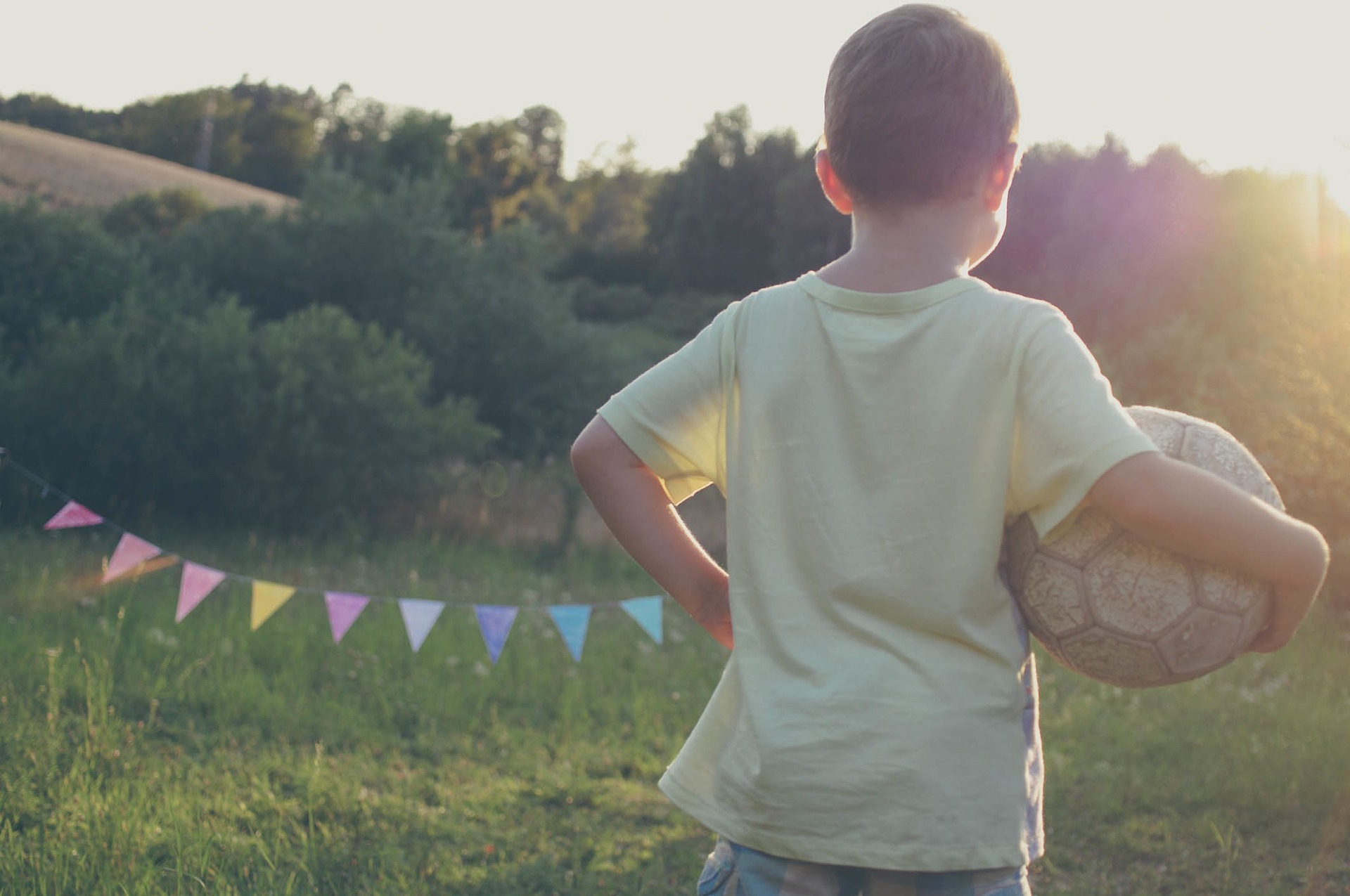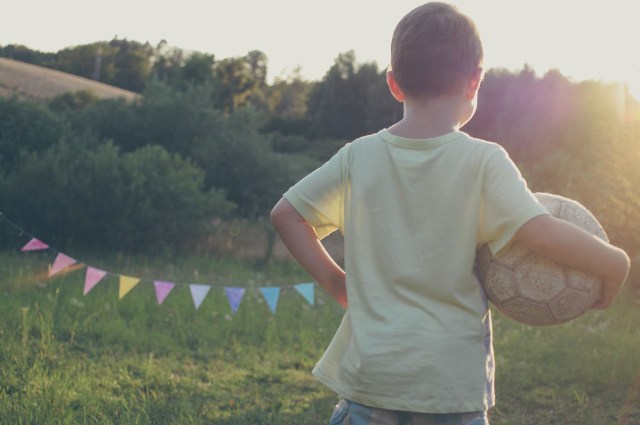
I was never a fan of stories that started with, “When I was a kid…” but, here I am, starting my story with, “When I was a kid…”—because when I was a kid, things were different. Kids would play outside all day long. All the neighbors knew each other. Cars slowed down while children played kickball and rode their bikes in the street. I could safely walk to my friend’s house a few doors down and not return until dinner.
Now, I hardly ever see kids playing in the street. Cars often have no regard for children nor residential speed limits. It’s hard not to worry about your child if they don’t answer the phone. And that’s another thing! Kids as young as eight and nine years old have cell phones. I didn’t get my first phone until I was 13 and that followed my very first beeper. I’m not sure exactly what changed or when the shift in childhood happened, but I do know that the world is a different place now.
I have fond memories of my childhood. I remember my first big girl bike. It was purple, pink and white with a black seat and large black tires. My best friends name was Lauren and she lives about 10 houses down the block. I had to ride up one large hill and down the other side before arriving at her yellow ranch.
We used to swim in her pool, draw with sidewalk chalk, walk her adorable pit bull terrier, and eat apples with whipped cream and sugar. I would play at her house for hours and my mother never worried. I called her on Lauren’s house phone when I arrived and made sure I was home in time for dinner. I don’t remember a single time when Lauren and I watched television. We may have watched a movie or two during our sleepovers but our time was primarily consumed with using our imagination.
Fast forward to present day. My son lives on his XBox. He asked for a cell phone for Christmas and we compromised on an iPod. When we visit his best friends house one of their favorite things to do is sit in what’s called “the lion’s den” in his room and play games on their tablets. Sure, they talk to each other, comment on what they’re doing and swap tablets, but they’re not using their imaginations. They’re more engaged with the screen than with each other.
I’m sure I’m not the only one who attends these types of playdates. But my son’s lack of interest in participating in anything other than screen time isn’t only about lack of imagination, though that’s a big one! Lack of time outdoors can actually affect your child in more ways than one. Here are some unknown benefits of outside play for kids.
1. Improved Attention Span
If your child is anything like my son, his attention span is sometimes lacking. I’m lucky if he can follow me from the beginning of the conversation till the end without getting distracted. Did you know that time spent outdoors can actually help reduce the effects of ADHD (attention deficit hyperactivity disorder)? Some parents reported that their children were more apt to investigate and exhibit curiosity about the world around them after spending time in the fresh air and sunshine.
2. Increased Vitamin D
Vitamin D is one of those important vitamins that most of us get from exposure to the sun. If kids are spending too much time indoors, they’re lacking in vitamin D exposure. But what kind of physical effects can this have on kids?
Vitamin D in children actually helps strengthen bones and prevent both heart disease and diabetes. The best way for your child’s skin to absorb vitamin D is through limited exposure to the sun without sunscreen. Yes, sunscreen is extremely important and necessary for protecting your child’s skin and should always be used. However, if you can expose your child to even a few minutes of sunlight without sunscreen, they will receive their daily dose of this beneficial nutrient.
There are also vitamin D supplements available. You can also encourage your child to eat more foods rich in vitamin D such as eggs, cheese, milk and some breakfast cereals.
3. Improved Eyesight
Who knew that time spent outdoors could actually help your child’s vision? A recent study showed that those children that spent more time playing outdoors were less likely to suffer from nearsightedness. Those suffering from this condition have a difficult time seeing far away but can see up close, without the need for glasses. This condition is sometimes linked to genetics, however, studies have shown that those children that spend approximately 14 hours per week outside are at lower risk of nearsightedness.
Another reason why outside time means improved vision is because it reduces a child’s screen time, which can negatively impact their eyesight over time. Eye strain is a common side effect of too much time spent staring at a computer screen, phone, tablet or television. Other effects include eye fatigue, blurred vision and dryness.
Get Outside!
The best way to get your children outdoors is to join them! Even if it means sitting on your front porch while they play in the yard, taking a walk, or tossing a ball around. Your engagement will encourage them to get involved.
Even a few minutes outside can help your child in so many ways. It’s also important to get outdoors even during the winter months. Playing in the snow, sleigh riding or building snowmen, even for a short period of time, provides your child with the same benefits as playing during the summer time.
So get creative and get outside!











